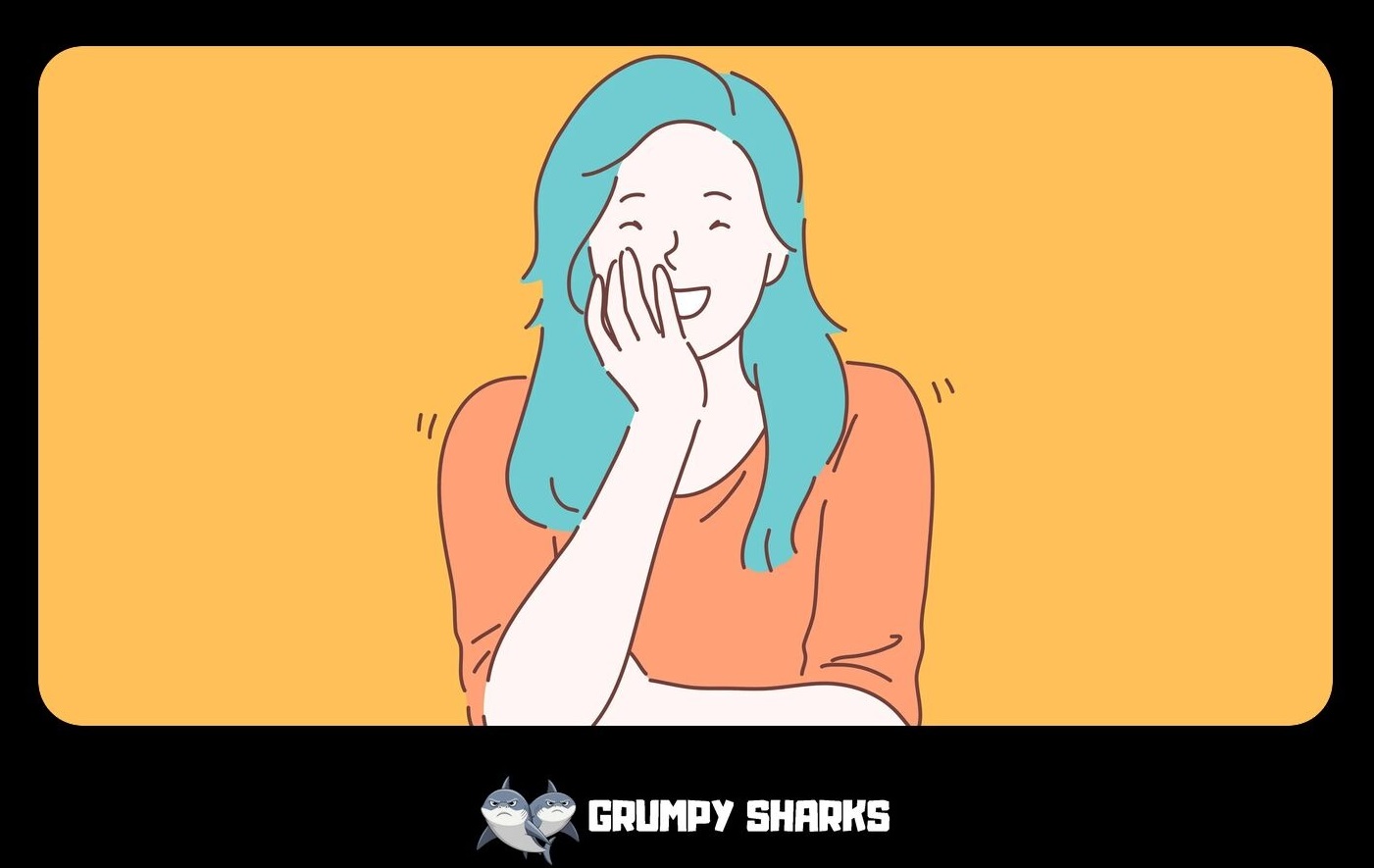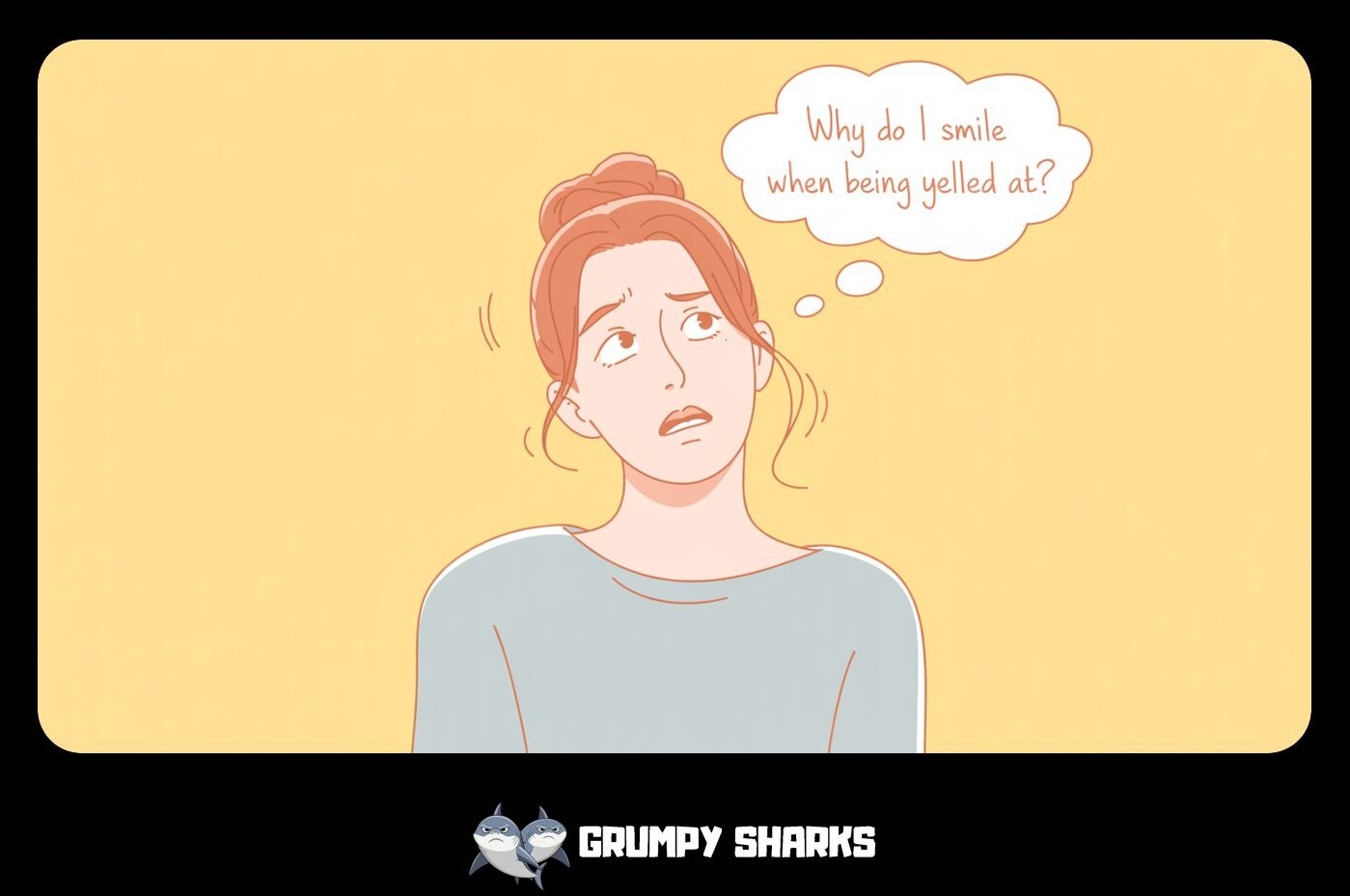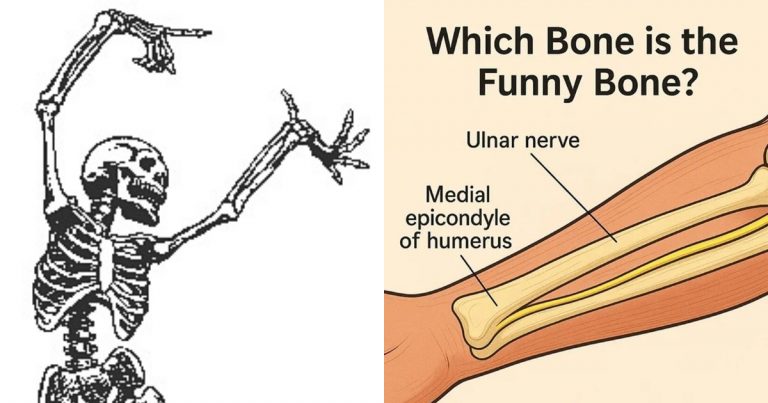Why Do I Smile When Being Yelled At? Understanding the Psychological Reasons Behind This Reaction
Have you ever asked, “Why Do I Smile When Being Yelled At?”? It’s a confusing reaction that can leave both you and the other person perplexed. In moments of stress or confrontation, people often react in ways they don’t fully understand. One such response is smiling or laughing when being yelled at.
While it might seem inappropriate or strange, this reaction is quite common and can be explained by several psychological factors.
In this article, Grumpy Sharks will share with you the reasons behind why some people smile or laugh when confronted with anger or aggression.
1. Nervous Laughter: A Coping Mechanism for Stress
In many cases, the smile you display in the face of being yelled at is not an expression of joy or amusement. Instead, it’s a nervous laughter response to stress. When individuals feel anxious or uncomfortable, their bodies often revert to laughter as a way to manage those feelings.
This instinctive reaction serves to diffuse tension and regain a sense of control in an emotionally charged situation. Much like children may smile to induce positive connection when faced with heightened emotional states, adults may similarly react with laughter to cope with discomfort in the face of conflict.
“Nervous laughter helps regulate connection and responsiveness from the person triggering the anxiety, allowing the individual to maintain emotional stability.” – Healthline
2. Incongruity: When the Situation Feels Absurd
Another reason for laughing when yelled at can be explained by incongruity theory. This theory suggests that when the situation is mismatched with expectations, like when someone reacts with aggression unexpectedly, people may smile or laugh in surprise or disbelief.
The expression may reflect the individual’s attempt to deal with the mismatch between the intensity of the situation and their ability to process it. The smile here is a way of dealing with emotional dissonance and a method of self-regulation.
3. Defense Mechanism: Laughing to Deflect Tension
Laughter can also serve as a defense mechanism in times of aggression or confrontation. Some people laugh to deflect the intensity of the situation or regain control over their emotions.
It may seem counterintuitive, but laughing in these circumstances can help reduce the emotional pressure and prevent you from feeling overwhelmed by the conflict.
4. Social Context and Self-Defense
In some cases, the act of smiling is more of a social defense mechanism. People may laugh or smile when confronted with anger as a way of deflecting from the uncomfortable emotions triggered by the confrontation.
This response helps reduce the impact of the aggression and allows them to reassert some control over the situation. Additionally, smiling can act as an unconscious attempt to avoid escalating the situation further.
5. Seeking Validation and Control
In certain cases, especially with people recovering from past trauma or unstable emotional environments, smiling when yelled at can signal a need for emotional validation. For these individuals, anger from others might feel familiar or even expected, and smiling is an attempt to express their own feelings of being understood.
This reaction is often connected to the desire to communicate their experience indirectly, through non-verbal cues, especially if they struggle to articulate their emotions.
6. Empathy or Connection
Interestingly, smiling or laughing in response to being yelled at can sometimes be a way of maintaining connection in emotionally charged interactions. When someone they care about expresses anger, a person might smile as a way of signaling empathy or trying to soften the exchange, seeking to reconnect emotionally. Even when the yelling feels overwhelming, the smile becomes an instinctive effort to regain warmth or understanding.
Conclusion: Why Do I Smile When Being Yelled At?
Smiling when being yelled at may seem counterintuitive, but it often reflects deeper psychological processes like nervous laughter, emotional regulation, or a desire to communicate indirectly.
It’s important to understand that this response is not a sign of self-satisfaction or smugness, but rather an instinctive coping strategy. Recognizing this reaction as a way of managing anxiety, seeking validation, or restoring connection can help make sense of what might otherwise be viewed as an inappropriate response. Understanding these emotional dynamics is crucial for fostering empathy and effective communication in difficult situations.










